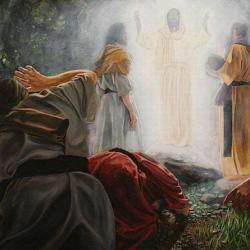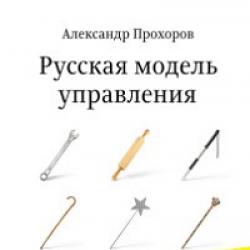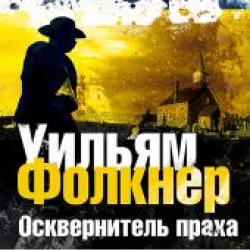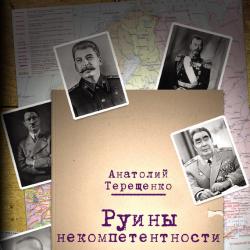Two bears came out of the woods. Two bears. Meir Shalev שתיים דובים
“I write,” says the heroine of the new novel, Meira Shalyova, “but I show my stories only to my relatives, and even then not all of them.”
This is not entirely accurate. Now we can also read the stories of Ruta Tavori - Shalev himself showed them to us. In his novel, a good half of the text is made up of stories allegedly written by the main character. But the other half was written as if not by him. And the very name of the book in Hebrew (“Shtaim dubim”) also does not seem to belong to him, because it is borrowed from the Bible, even the grammatical error that is in the Bible is preserved: not “Two Bears”, but “Two Bears”.
Isn't it true that everything that has been said requires an explanation?
Let's try to explain in a few words.
First of all, it should be said that Meir Shalev's new novel is painful. Of course, as always with Shalev, it is wonderfully written, it is inseparably fascinating, it sparkles with humor, powerfully written characters live and move in it, it is filled with passions - including love; in general, those who read Shalev's previous books are familiar with this list, and those who discover this author for themselves for the first time should only envy. But above all this, the new novel asks such painful moral questions that no book by Shalev has asked before. Not only does this work raise the deepest, most hidden layers of the human soul, everything in us that we sometimes do not admit to ourselves, and does it ruthlessly, disregarding the conventions of literature, it is also implicated in such family secrets. and crimes that continue to stand before our eyes and hurt our memory long after we have turned the last page. It is the latter, because the main terrible scene - and the main moral question - the author saved to the very end of the book, and, having closed it, you will no longer be able to get rid of it until you find a convincing (maybe, more accurately: soothing) for yourself answer to this question.
Secondly, it should also be warned that Shalev's new book is not only painful (and, therefore, purifyingly difficult) for the soul, but also masterfully complex in its plot. Shalev's previous books were also distinguished by the virtuosic complexity of the plot structure. The author played with time, sometimes returning us to the past, where something already known to us had not yet happened, sometimes running further than his story, from which it only becomes clear that before it only seemed clear, and sometimes even layered this game “stories within a story”, which were absolutely alien in appearance to the main narrative - but only in appearance, because in fact everything went into action and everything got its place in the overall picture, except that this picture arose only after reading the whole work. But in his new novel, Shalev adds one more to these difficulties: as already mentioned, a good half of the chapters have special titles, and this makes it clear that we are facing episodes of a family history composed by the heroine of the book, school teacher Ruta Tavori. The reception is wonderful in its own way, because in her stories the teacher Ruta explains a lot to us in the plot, but at the same time we understand that she cannot know much of what she told, and therefore it is difficult to fully trust her, and we can only guess, what was "really"? It's a good, exciting literary feeling. Because, as the heroine herself says: "An unequivocal truth is boring even to itself."
Well, what about other chapters, those that are simply called “Chapter such and such ... chapter such and such”? And this is not me either, the author winks at us, this is a recording of an interview that a certain researcher on the history of Jewish settlements Varda Canetti allegedly takes from the heroine of the book, Ruta Tavori, and in which Ruta talks about herself and her family. Judging by the interviewer's remarks, Varda does not really understand the psychological depths of human relationships, about which Ruta speaks with utmost precision and exciting interest, sometimes confessively, sometimes sarcastically mockingly, but we, who understand enthusiastically, can forget about Varda and only thank the heroine - and the author - for acute intellectual pleasure.
There is one more peculiarity in this Shalev's construction. In some interviews with Ruta Tavori, we again come across many events that are already known to us from the writings of Ruta herself, but alas: in her interviews, these events - or their motivations and causes - look different than in her own stories. And this author's technique makes us return again and again to the age-old "Pilatian" question: "What is truth?" Thanks to these “clashes of truths”, Shalev manages, happily avoiding the usual schemes of a detective story (or destroying them with pleasure), to make the reading of his book not only a painful moral inquiry and not only an intense intellectual adventure, but also a joyful literary experience.
And now, having combined all that has been said, it is easy to understand that Ruta Tavori, whose voice we hear both in the interview chapters and in the chapters called her stories, turns out to be a through narrator of the entire book (including her, the book, an additional gift to the reader in the form of three lovely children's stories). In fact, all of Shalev's previous books were also written in the first person, that is, they were always told by the main characters, but this time the writer for the first time risked transferring his copyright not to a man, but to a woman. Up to the right to talk about the most intimate (physiological and even sexual) female experiences. Daring - and, it seems, the rarest - literary experiment!
Why he did it is a mystery. However, Shalev, in the words of the poet, has long been "wounded by the female share", and all the most likable characters in his books are strong, tall, courageous (and beautiful) women. But none of them have hitherto gotten the lead word in his books, where the narrators have always been male characters, so maybe he's just paying off an old, old debt. True, you can think differently. One might think that the hero-narrator of the new novel has another, more important purpose than just being the "voice of a woman." For, closing the book, we clearly feel that we have been told not one, but two parallel stories of the Tavori family. One - real - story of her family was told by Ruta Tavori in an interview, and the other - a kind of "myth of the Tavori family" - she created in her stories. And the mutual reflection of these two parallel stories in continuously alternating chapters allows the author to create a powerful movement of the plot, which keeps the readers of the novel in suspense until the last pages, because its main scene, as already mentioned, is relegated to the very end.
But here we are already approaching the boundary beyond which the preface threatens to turn into a retelling. And, not wanting to deprive the reader of the pleasure of reading the novel and thinking for himself, we would rather follow the example of the wise Scheherazade: we will stop permitted speeches and give the floor to the author himself - Ruta Tavori, alias Meir Shalev.
Chapter first
The cell phone rings. The tall, stocky guy looks at the number flashing on the screen and turns to the woman he's having lunch with.
“I need to answer,” he says. - I'll be right back.
And he heads for the door, trying to suck in his small tummy as he goes. He has not yet got used to this acquisition, and every time his stomach surprises him again - either in the mirror, above the belt, or under the eyes of his girlfriend, when he is working on her body.
“I counted nine rings,” a familiar voice calls out on the phone. - You make yourself wait.
- Sorry. I'm in a restaurant, I had to go out...
- We have a problem.
- I'm listening to.
- I will explain to you, carefully and wisely, and you try to answer me in the same spirit.
Meir Shalev שתיים דובים
[if you translate the title into Russian in accordance with the Russian translation of the Tanakh, then the book can be called - Two Bears]
To be honest, I approached this book with some trepidation. Again, family history against the backdrop of a Jewish settlement in Eretz-Israel - Shalev masters this topic in all his novels, and some monotony of his muse begins to tire with the accumulation of what he has read. But literally from the very first pages of this novel, it became clear that before us is not quite a typical Shalev. It seems that the author, remaining in the usual entourage of his novels, in this book decided to allow himself more than usual.
Basically, the story is told on behalf of Ruta Tavori, a teacher of the Tanakh and a class teacher in the high school of one of the "settlements of the baron" (the so-called Jewish settlements, which at one time enjoyed the support of Baron Edmond de Rothschild). Ruta is approached by Warda, a historian researching the gender issue in the old Jewish settlements. Very eager to speak out, Ruta told her the complex, sometimes scary, and very multi-layered history of the Tabori clan. Some pages of the family history are told on behalf of the author, and some chapters are stories that Ruta writes for her son Neta, who died at the age of six.
I was fascinated by this text as, probably, no other novel by Shalev has fascinated me. Firstly, the text is Shalev's trademark, but not overloaded with too intricate games with words and meanings, as is often the case with Shalev. Secondly, the personality of the narrator evokes very empathetic feelings. Her self-digging and revealing family secrets are flavored with a share of humor and self-irony, illuminating her image from various angles, which contributes to the multidimensional perception of the image of Ruta. Thirdly, the story itself… Wow, what a story it is. The story is all built on Tanachian allusions, and, as some readers have seen, also on the stories of the sages of the Talmud (Khazal). The profession of a storyteller also contributes to constant references to the Tanakh. The very title of the book directs the reader to the Book of Kings and sets the tone for the whole story. By the way, you can read the explanation of the Academy of Hebrew about the title of the book: according to the standards of today's Hebrew, it is a mistake - "two" is written in the feminine, and the bears appear in the masculine, but from the explanation of the Academy it follows that such a spelling does not contradict the accepted in Tanakhiev times )
Regarding this title, I simply cannot help but quote from the book, which seems to appear in every review of the novel. Ruta tells the class about the episode "Bears kill the children that teased Elisha" from 2 Kings, chapter 2, verses 23,24, which reads as follows:
וַיַּעַל מִשָּׁם (אלישע), בֵּית-אֵל; וְהוּא עֹלֶה בַדֶּרֶךְ, וּנְעָרִים קְטַנִּים יָצְאוּ מִן-הָעִיר, וַיִּתְקַלְּסוּ-בוֹ וַיֹּאמְרוּ לוֹ, עֲלֵה קֵרֵחַ עֲלֵה קֵרֵחַ. וַיִּפֶן אַחֲרָיו וַיִּרְאֵם, וַיְקַלְלֵם בְּשֵׁם יְהוָה; וַתֵּצֶאנָה שְׁתַּיִם דֻּבִּים, מִן הַיַּעַר, וַתְּבַקַּעְנָה מֵהֶם, אַרְבָּעִים וּשְׁנֵי יְלָדִים. וַיֵּלֶךְ מִשָּׁם, אֶל-הַר הַכַּרְמֶל; וּמִשָּׁם, שָׁב שֹׁמְרוֹן
This episode in Russian translation:
“And he went from there to Bethel. As he walked along the road, little children came out of the city and mocked him and said to him: Go, bald! go, baldhead! He looked around and saw them and cursed them in the name of the Lord. And two she-bears came out of the forest and tore forty-two children out of them.
Ofer, Ruta's favorite student, asks the teacher: If it says שתיים דובים, then why does she get angry when students say שתי שקל, or שתי ילדים
-שתי ילדים, Ruta replies, is an ugly mistake, and שתיים דובים is a beautiful mistake. There are writers who are willing to pay a lot of money for such a beautiful mistake.
Naturally, this episode from the Tanakh is closely connected with the plot of the novel, being its kind of leitmotif.
This is a book about people and God. People do terrible things, and God avenges them, and revenge sometimes extends to other people. The principle of "an eye for an eye" is described by Shalev so ruthlessly that I would generally not recommend reading this book to impressionable people, and especially parents of small children. The text may well drive into non-illusory stress.
Images Shalev draws very capacious. First of all, of course, Ruta Tavori. Her grandfather Zeev Tavori - brrr ... his image will not be erased from my memory for a long time. Moreover, Shalev manages to build an image that is not stereotyped - not unambiguously “bad”, and not unambiguously “good”, but one that evokes the widest range of feelings. Ruta's husband, who spoke himself into hard labor after Neta's death. The secondary characters are also well written.
I don't know if this novel will take a place in the canon of Israeli literature, but I think it has a place there. Perhaps, against the background of the rest of Shalev's novels, he will be perceived as a hackneyed repetition of them, but, with all the similarity to his previous texts, in this book Shalev broke out of some of his usual boundaries, sparing neither the characters nor the reader. But in general, the book ends on an optimistic note, as far as it is possible after setting out the chain of events that occurred in the Tavori family, from the 20s of the last century to the present day.
The skill of Shalev's pen is clearly felt in this book: language, humor, allusions - literally everything is in place 🙂
Blogger posts are posted on the ReLevant website without changing the style and spelling of the original source. Exceptions are obscene expressions, which are replaced by asterisks. The opinions of bloggers may not coincide with the position of the editors.
The story that will now be discussed is so terrible and unusual for the philistine opinion that many would probably prefer not to see it in the Bible at all.
Elisha - God's prophet - goes to Bethel. When he passed by the city, small children ran up to him and began to taunt him, calling him bald. Elisha curses them back. And two female bears run out of the forest and kill forty-two children from them.
23 And he went from there to Bethel. As he walked along the road, little children came out of the city and mocked him and said to him: Go, bald! go, baldhead! 24. He looked around and saw them and cursed them with the name of the Lord. And two she-bears came out of the forest and tore forty-two children out of them. (Fourth Book of Kings 2:23,24)
This is not the first place in the Bible with the mass death of children. For example, when Israel tried to leave Egypt, God struck down all the firstborn, except for those families that slaughtered the Passover Lamb. We also remember the slaughter of babies in Bethlehem, when Herod wanted to kill the future Messiah. God then warned only the family of Joseph and Mary. Both of these cases were a kind of sign for the wicked - the Egyptians and the Israelites. The case with two she-bears carries the same message. Let's now talk about this in more detail.
The symbolic meaning of the number 42
Pay attention to the fact that the exact number of children killed is noted. Exactly 42! This is not accidental, for this number has a prophetic meaning. Remember the genealogy of Jesus from the gospel of Matthew. After listing all the ancestors from Abraham, Matthew then notes that from Abraham to Jesus there were three times fourteen generations.
(14 + 14 +14 = 42)
‘’So all generations from Abraham to David fourteen births; and from David to the migration to Babylon fourteen births; and from the migration to Babylon to Christ fourteen births’’ (Mat. 1:17).
Abraham is the father of carnal Israel. Accordingly, Jesus came to Israel during the life of 42 generations.
But what is the connection?
Elisha as an image of Jesus
Elisha was the successor of the prophet Elijah, and received a double spirit when he began his ministry. And the fact that he cursed 42 children was a type for the service of the Messiah.
After all, Christ was also the successor of the greater Elijah - John the Baptist, and had an incomparably greater Spirit. The forty-second generation of Israel also did not accept God's messenger, rejected him and, as a result, was cursed. Jesus said that although Israel had sinned throughout history, it was this forty-second generation that would answer for all the crimes of previous generations.
‘’May all the righteous blood shed on the earth come upon you, from the blood of the righteous Abel to the blood of Zechariah the son of Barahiah, whom you killed between the temple and the altar. Truly I tell you that all these things will come to this generation'' (Mat. 23:35,36).
Jesus repeatedly showed through parables and signs that fleshly Israel would be rejected. As a result, they reaped the bitter fruits of their disobedience. In the year 70, Roman troops came and destroyed Jerusalem.
Well, who did the two bears symbolize?
Two she-bears = two witnesses
God, through Malachi, warned Israel to remember the law of Moses, as he would send them Elijah the prophet before the coming of the day of the Lord.
4. Remember the law of Moses my servant, which I commanded him at Horeb for all Israel, as well as the rules and regulations. 5. Behold, I will send you Elijah the prophet before the coming of the great and terrible day of the Lord. 6. And he will turn the hearts of the fathers to the children, and the hearts of the children to their fathers, so that when I come, I will not strike the earth with a curse. (Malachi 4:4-6)
Elijah and Moses - symbolize certain types of service in the last days.
Elijah turned the hearts of the people to the Lord, prompting them to repent and turn. In the first century, the ministry of Elijah was performed by John the Baptist, who baptized the people as a sign of repentance before the coming of the Messiah.
Moses was Israel's leader, shepherd and legislator. Greater Moses - Jesus Christ, came to earth to teach and form a new people.
Accordingly, two bears are two figurative witnesses of God - Elijah and Moses. In the first century, their role was filled by John the Baptist and Jesus.

30 And behold, two men were talking with Him, which were Moses and Elijah; 31. appearing in glory, they spoke of his departure, which he was to accomplish in Jerusalem. (Holy Gospel of Luke 9:30,31)
In the last days there will also be a group of people named as two witnesses who will prophesy in the spirit of Elijah and Moses. But this is a topic for a separate article.
3. And ladies my two witnesses and they will prophesy a thousand two hundred and sixty days, clothed in sackcloth. 5. And if anyone wants to offend them, fire will go out of their mouth and consume their enemies; if anyone wants to offend them, he must be killed. 6. They have power to shut up the heavens so that it does not rain on the earth during the days of their prophecy. [Or me] , And have power over the waters, turn them into blood, and strike the earth with every plague, whenever they want [ Moses] . (Revelation of John the Theologian 11:3,5,6)
Two bears came out of the forest Meir Shalev
(No ratings yet)
 Title: Two bears came out of the forest
Title: Two bears came out of the forest
About the book “Two Bears Came Out of the Forest” by Meir Shalev
The new - the eighth in this series - novel by Meir Shalev, Israel's most popular writer, is as captivating as his previous works, already beloved by Russian readers. The book sparkles with intellectual irony, genuine human passions seethe on its pages. In addition, the author decided on a daring experiment: for the first time in his work, the story is told on behalf of a woman who has been given the right to talk about the most intimate experiences. At the same time, the novel raises such painful moral questions that no other book by Shalev has asked so far. Ruthlessly, disregarding the conventions of literature, the author penetrates into the deepest, most hidden layers of the human soul. Secrets and crimes in the family of the heroine of the novel continue to hurt our memory long after we turn the last page.
On our site about books lifeinbooks.net you can download for free without registration or read online the book “Two Bears Came Out of the Forest” by Meir Shalev in epub, fb2, txt, rtf, pdf formats for iPad, iPhone, Android and Kindle. The book will give you a lot of pleasant moments and a real pleasure to read. You can buy the full version from our partner. Also, here you will find the latest news from the literary world, learn the biography of your favorite authors. For novice writers, there is a separate section with useful tips and tricks, interesting articles, thanks to which you can try your hand at writing.
Great about verses:
Poetry is like painting: one work will captivate you more if you look at it closely, and another if you move further away.
Little cutesy poems irritate the nerves more than the creak of unoiled wheels.
The most valuable thing in life and in poetry is that which has broken.
Marina Tsvetaeva
Of all the arts, poetry is most tempted to replace its own idiosyncratic beauty with stolen glitter.
Humboldt W.
Poems succeed if they are created with spiritual clarity.
The writing of poetry is closer to worship than is commonly believed.
If only you knew from what rubbish Poems grow without shame... Like a dandelion near a fence, Like burdocks and quinoa.
A. A. Akhmatova
Poetry is not in verses alone: it is spilled everywhere, it is around us. Take a look at these trees, at this sky - beauty and life breathe from everywhere, and where there is beauty and life, there is poetry.
I. S. Turgenev
For many people, writing poetry is a growing pain of the mind.
G. Lichtenberg
A beautiful verse is like a bow drawn through the sonorous fibers of our being. Not our own - our thoughts make the poet sing inside us. Telling us about the woman he loves, he delightfully awakens in our souls our love and our sorrow. He is a wizard. Understanding him, we become poets like him.
Where graceful verses flow, there is no place for vainglory.
Murasaki Shikibu
I turn to Russian versification. I think that over time we will turn to blank verse. There are too few rhymes in Russian. One calls the other. The flame inevitably drags the stone behind it. Because of the feeling, art certainly peeps out. Who is not tired of love and blood, difficult and wonderful, faithful and hypocritical, and so on.
Alexander Sergeevich Pushkin
- ... Are your poems good, tell yourself?
- Monstrous! Ivan suddenly said boldly and frankly.
- Do not write anymore! the visitor asked pleadingly.
I promise and I swear! - solemnly said Ivan ...
Mikhail Afanasyevich Bulgakov. "Master and Margarita"
We all write poetry; poets differ from the rest only in that they write them with words.
John Fowles. "The French Lieutenant's Mistress"
Every poem is a veil stretched out on the points of a few words. These words shine like stars, because of them the poem exists.
Alexander Alexandrovich Blok
The poets of antiquity, unlike modern ones, rarely wrote more than a dozen poems during their long lives. It is understandable: they were all excellent magicians and did not like to waste themselves on trifles. Therefore, behind every poetic work of those times, a whole Universe is certainly hidden, filled with miracles - often dangerous for someone who inadvertently wakes dormant lines.
Max Fry. "The Talking Dead"
To one of my clumsy hippos-poems, I attached such a heavenly tail: ...
Mayakovsky! Your poems do not warm, do not excite, do not infect!
- My poems are not a stove, not a sea and not a plague!
Vladimir Vladimirovich Mayakovsky
Poems are our inner music, clothed in words, permeated with thin strings of meanings and dreams, and therefore drive away critics. They are but miserable drinkers of poetry. What can a critic say about the depths of your soul? Don't let his vulgar groping hands in there. Let the verses seem to him an absurd lowing, a chaotic jumble of words. For us, this is a song of freedom from tedious reason, a glorious song that sounds on the snow-white slopes of our amazing soul.
Boris Krieger. "A Thousand Lives"
Poems are the thrill of the heart, the excitement of the soul and tears. And tears are nothing but pure poetry that has rejected the word.






